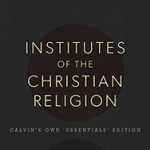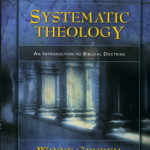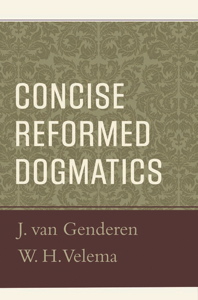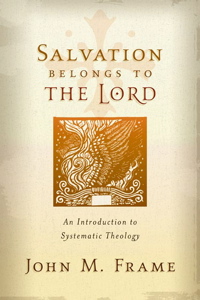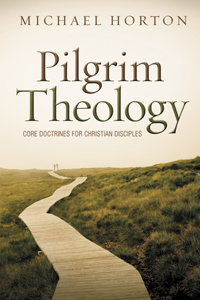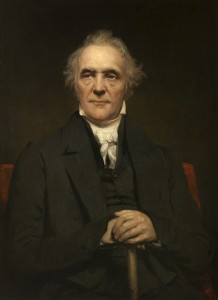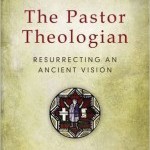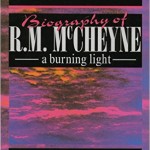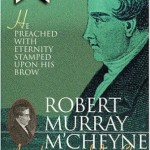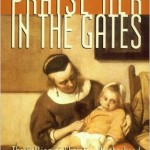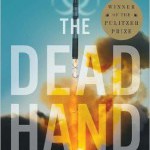I love to read. I find it helpful to summarize my thoughts on each book and I offer those thoughts in the hope that you will be encouraged to either read or pass over the given title.
 The Scottish Christian Heritage by Iain Murray. What a feast this one is! I personally find Iain Murray’s books to always be edifying and The Scottish Christian Heritage did not in any way deviate from this trend. It is quite amazing to consider how, in God’s providence, the little English-speaking island of Scotland has had such an effect on church history. Here Murray recounts Scotland’s major figures and movements from Knox to Bruce to Chalmers, from the Reformation to the Great Disruption. I found the biographical chapter on Chalmers to be soul stirring. But the chapter on Scottish preaching offered some surprising insights I’d never before considered, and really is worth the price of the whole book. Tolle lege!
The Scottish Christian Heritage by Iain Murray. What a feast this one is! I personally find Iain Murray’s books to always be edifying and The Scottish Christian Heritage did not in any way deviate from this trend. It is quite amazing to consider how, in God’s providence, the little English-speaking island of Scotland has had such an effect on church history. Here Murray recounts Scotland’s major figures and movements from Knox to Bruce to Chalmers, from the Reformation to the Great Disruption. I found the biographical chapter on Chalmers to be soul stirring. But the chapter on Scottish preaching offered some surprising insights I’d never before considered, and really is worth the price of the whole book. Tolle lege!
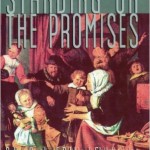 Standing on the Promises: A Biblical Handbook of Childrearing by Doug Wilson. With the completion of Standing on the Promises my roughly three-week journey through Wilson’s Family Series is now complete. As the subtitle suggests this book is Wilson’s manifesto on parenting. As such, I expected great things. Imagine then the letdown it was to find the book has much more to do with the covenant than raising children in the covenant. And because I so greatly differ with Wilson on a biblical understanding of the covenant I found myself disagreeing with almost all the book’s instruction. The sense I felt at the end was, “Oh well.”
Standing on the Promises: A Biblical Handbook of Childrearing by Doug Wilson. With the completion of Standing on the Promises my roughly three-week journey through Wilson’s Family Series is now complete. As the subtitle suggests this book is Wilson’s manifesto on parenting. As such, I expected great things. Imagine then the letdown it was to find the book has much more to do with the covenant than raising children in the covenant. And because I so greatly differ with Wilson on a biblical understanding of the covenant I found myself disagreeing with almost all the book’s instruction. The sense I felt at the end was, “Oh well.”
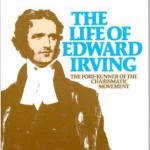 The Life of Edward Irving by Arnold Dallimore. Have you ever heard of Edward Irving? Probably no. I likely wouldn’t have if it wasn’t for my studies in Robert Murray M’Cheyne. But Irving is of great interest to M’Cheyne students because his view of eschatology played a huge part in M’Cheyne’s ardent premillennialism. Although you can’t necessarily call Irving a proto-dispensationalist (he close on several points), you can call definitely him a proto-charismatic. He created a Pentecostal church before such an assembly existed. Dallimore writes, “He was exceptionally tall and elegantly handsome; his mind was that of a genius, though tending towards eccentricty; his spirit was almost childlike in it simplicity, yet at the same time mightily masculine, full of courage and unflinching in conviction, and as a preacher he was known as ‘the greatest orator of the age.'” This Life is one of the more fascinating ones I’ve read in a long time.
The Life of Edward Irving by Arnold Dallimore. Have you ever heard of Edward Irving? Probably no. I likely wouldn’t have if it wasn’t for my studies in Robert Murray M’Cheyne. But Irving is of great interest to M’Cheyne students because his view of eschatology played a huge part in M’Cheyne’s ardent premillennialism. Although you can’t necessarily call Irving a proto-dispensationalist (he close on several points), you can call definitely him a proto-charismatic. He created a Pentecostal church before such an assembly existed. Dallimore writes, “He was exceptionally tall and elegantly handsome; his mind was that of a genius, though tending towards eccentricty; his spirit was almost childlike in it simplicity, yet at the same time mightily masculine, full of courage and unflinching in conviction, and as a preacher he was known as ‘the greatest orator of the age.'” This Life is one of the more fascinating ones I’ve read in a long time.
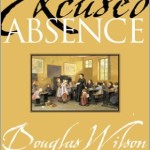 Excused Absence: Should We Send Our Kids to Government Schools? by Doug Wilson. If you know anything about Wilson you won’t be surprised to find him answering the subtitle’s question in the negative. Excused Absence is his passionate cry for Christian parents to educate their children in a Christian environment. Although I think he goes to far in essentially saying Christian teachers can’t truly serve in public schools, I’m thoroughly sympathetic to his argument for educating our children in an institution submitted to Christ’s lordship. The work is, of course, helped by Wilson’s prodigious pen. Take this for example,
Excused Absence: Should We Send Our Kids to Government Schools? by Doug Wilson. If you know anything about Wilson you won’t be surprised to find him answering the subtitle’s question in the negative. Excused Absence is his passionate cry for Christian parents to educate their children in a Christian environment. Although I think he goes to far in essentially saying Christian teachers can’t truly serve in public schools, I’m thoroughly sympathetic to his argument for educating our children in an institution submitted to Christ’s lordship. The work is, of course, helped by Wilson’s prodigious pen. Take this for example,
When God is excluded from the classroom, we are not merely remaining silent about God. We are teaching children that they may safely disregard Him. Whether or not God exists, the lesson goes, His existence is irrelevant to what we are doing here. So when God is omitted, we are not silent about Him; rather, we are teaching the children in the most convincing way possible that God is irrelevant. They can safely omit Him when it is convenient to do so. (62)
 The Case for Classical Christian Education by Doug Wilson. On the surface Wilson’s Case might seem like a good resource for parents interested in learning what classical Christian education is all about. Yet, while they will surely benefit from Wilson’s work, The Case for Classical Christian Education is geared more for educators—for those thinking about starting a classical Christian school. I have a hope of doing something similar at IDC down the road, so I read this book and was helped. It gave insights on matters of school boards, rules for teachers, the value of Latin, and the “biblicity” of the trivium I hadn’t considered before.
The Case for Classical Christian Education by Doug Wilson. On the surface Wilson’s Case might seem like a good resource for parents interested in learning what classical Christian education is all about. Yet, while they will surely benefit from Wilson’s work, The Case for Classical Christian Education is geared more for educators—for those thinking about starting a classical Christian school. I have a hope of doing something similar at IDC down the road, so I read this book and was helped. It gave insights on matters of school boards, rules for teachers, the value of Latin, and the “biblicity” of the trivium I hadn’t considered before.
 Archangel by Robert Harris. What if Joseph Stalin left a secret hidden that, when revealed after his death, could potentially change the history of his people? Harris takes up that very fictional question in Archangel. The narrative revolves around one Fluke Kelso, something of an exasperating English historian whose expertise is Soviet Russia. He comes across Stalin’s old leather bound journal and proceeds to thinks riches and fame await. Yet, on further review the journal hides a secret long hidden, but soon to be revealed. What the secret is won’t surprise the reader, but I did find myself taken aback by the abrupt—and unexpected—ending. The story lacked any substantial character or plot development, so as it barreled along I often felt it need to be longer than it was. But if it was longer I’m not sure I’d have read it.
Archangel by Robert Harris. What if Joseph Stalin left a secret hidden that, when revealed after his death, could potentially change the history of his people? Harris takes up that very fictional question in Archangel. The narrative revolves around one Fluke Kelso, something of an exasperating English historian whose expertise is Soviet Russia. He comes across Stalin’s old leather bound journal and proceeds to thinks riches and fame await. Yet, on further review the journal hides a secret long hidden, but soon to be revealed. What the secret is won’t surprise the reader, but I did find myself taken aback by the abrupt—and unexpected—ending. The story lacked any substantial character or plot development, so as it barreled along I often felt it need to be longer than it was. But if it was longer I’m not sure I’d have read it.
 Flight Over Water by Ken Follett. I find few popular authors as consistently riveting as Follett—a fact proven over and over in Flight Over Water. It’s September 1939 and war has just broken out over Europe. A group of miscreants and millionaires board the vaunted Pan Am clipper bound for New York. Follett’s whole story tells what happens over the next thirty-six hours or so. And he creates drama and intrigue at every turn, and it’s surprisingly believable. The deeper matter at hand for the reader is that of what we might call rooting for rightness; Follet begs the reader to root for the thief, adulteress, and gangster—will you or won’t you?
Flight Over Water by Ken Follett. I find few popular authors as consistently riveting as Follett—a fact proven over and over in Flight Over Water. It’s September 1939 and war has just broken out over Europe. A group of miscreants and millionaires board the vaunted Pan Am clipper bound for New York. Follett’s whole story tells what happens over the next thirty-six hours or so. And he creates drama and intrigue at every turn, and it’s surprisingly believable. The deeper matter at hand for the reader is that of what we might call rooting for rightness; Follet begs the reader to root for the thief, adulteress, and gangster—will you or won’t you?
Click here to find other entries in the Recent Reads series.


